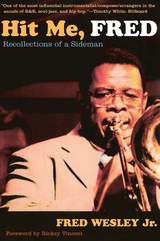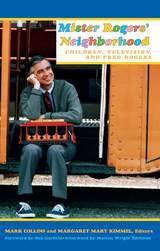3 books about Fred

Fred in Love
Felice Picano
University of Wisconsin Press, 2005
In the early 1970s, when he was still an aspiring, unpublished writer, Felice Picano began a remarkable relationship with an extraordinary animal: a days-old kitten slated for euthanasia who refused to perish. Rescued, named, and trained, Fred became an extraordinarily intelligent companion, ally, teacher, and constant wonder to the author as he began his ascent through the Bohemian circles of Greenwich Village, among musicians, actors, curious characters, and even the famous British actress in hiding right next door.
But when an acquaintance brought his female cat to be serviced by Fred, an entire new set of experiences opened up for the cat-and for Picano, who'd never had the nerve to befriend her owner, his ideal man. The course of love seldom runs straight for cats or for men, and this time would prove (hilariously) no different.
This is another of Picano's distinguished portraits of a vanished era, when a new gay domain was solidifying only a few years after the Stonewall Riots, and the still nascent gay literary world that Picano would help invent was just a conception. Fred in Love is a charming, nostalgic, funny, gossipy, involving, and ultimately enlightening story about how we learn and grow, and how we love-whether the object of our affection is a cat or another human being. It's sure to take its place next to Picano's now classic literary memoirs Ambidextrous, Men Who Loved Me, and A House on the Ocean, a House on the Bay.
But when an acquaintance brought his female cat to be serviced by Fred, an entire new set of experiences opened up for the cat-and for Picano, who'd never had the nerve to befriend her owner, his ideal man. The course of love seldom runs straight for cats or for men, and this time would prove (hilariously) no different.
This is another of Picano's distinguished portraits of a vanished era, when a new gay domain was solidifying only a few years after the Stonewall Riots, and the still nascent gay literary world that Picano would help invent was just a conception. Fred in Love is a charming, nostalgic, funny, gossipy, involving, and ultimately enlightening story about how we learn and grow, and how we love-whether the object of our affection is a cat or another human being. It's sure to take its place next to Picano's now classic literary memoirs Ambidextrous, Men Who Loved Me, and A House on the Ocean, a House on the Bay.
[more]

Hit Me, Fred
Recollections of a Sideman
Fred Wesley Jr.
Duke University Press, 2005
With Hit Me, Fred, sensational sideman Fred Wesley Jr. moves front and center to tell his life story. A legendary funk, soul, and jazz musician, Wesley is best known for his work in the late sixties and early seventies with James Brown and as the leader of Brown’s band, Fred Wesley and the JB’s. Having been the band’s music director, arranger, trombone player, and frequent composer, Wesley is one of the original architects of funk music. He describes what it was like working for the Godfather of Soul, revealing the struggle and sometimes stringent discipline behind Brown’s tight, raucous tunes. After leaving Brown and the JB’s, Wesley arranged the horn sections for Parliament, Funkadelic, and Bootsy’s Rubber Band, and led Fred Wesley and the Horny Horns. Adding his signature horn arrangements to the P-Funk mix, Wesley made funk music even funkier.
Wesley’s distinctive sound reverberates through rap and hip-hop music today. In Hit Me, Fred, he recalls the many musicians whose influence he absorbed, beginning with his grandmother and father—both music teachers—and including mentors in his southern Alabama hometown and members of the Army band. In addition to the skills he developed working with James Brown, George Clinton, Bootsy Collins, and the many talented musicians in their milieu, Wesley describes the evolution of his trombone playing through stints with the Ike and Tina Turner Revue, Hank Ballard, and Count Basie’s band. He also recounts his education in the music business, particularly through his work in Los Angeles recording sessions.
Wesley is a virtuoso storyteller, whether he's describing the electric rush of performances when the whole band is in the groove, the difficulties of trying to make a living as a rhythm and blues musician, or the frustrations often felt by sidemen. Hit Me, Fred is Wesley’s story of music-making in all its grit and glory.
Wesley’s distinctive sound reverberates through rap and hip-hop music today. In Hit Me, Fred, he recalls the many musicians whose influence he absorbed, beginning with his grandmother and father—both music teachers—and including mentors in his southern Alabama hometown and members of the Army band. In addition to the skills he developed working with James Brown, George Clinton, Bootsy Collins, and the many talented musicians in their milieu, Wesley describes the evolution of his trombone playing through stints with the Ike and Tina Turner Revue, Hank Ballard, and Count Basie’s band. He also recounts his education in the music business, particularly through his work in Los Angeles recording sessions.
Wesley is a virtuoso storyteller, whether he's describing the electric rush of performances when the whole band is in the groove, the difficulties of trying to make a living as a rhythm and blues musician, or the frustrations often felt by sidemen. Hit Me, Fred is Wesley’s story of music-making in all its grit and glory.
[more]

Mister Rogers Neighborhood
Children Television And Fred Rogers
Mark Collins
University of Pittsburgh Press, 1997
Foreword by Bob Garfield. Afterword by Marian Wright Edelman
Born in 1928 in Latrobe, Pennsylvania, Fred Rogers began his television career in 1951 at NBC. In 1954, he became program director for the newly founded WQED-TV in Pittsburgh, the first community-supported television station in the United States. From 1954 to 1961, Rogers and Josie Carey produced and performed in WQED's The Children's Corner, which became part of the the Saturday morning lineup on NBC in 1955 and 1956.
It was after Fred Rogers was ordained as a Presbyterian minister in 1963, with a special charge of serving children and their families through television, that he developed what became the award-winning PBS series Mister Rogers' Neighborhood.
Fred Rogers began his television career in 1951 at NBC, and in 1954, he became program director for the newly founded WQED-TV in Pittsburgh, the first community-supported television station in the United States. From 1954 to 1961, Rogers and Josie Carey produced and performed in WQED's The Children's Corner, which became part of the the Saturday morning lineup on NBC in 1955 and 1956. It was after Fred Rogers was ordained as a Presbyterian minister in 1963, with a special charge of serving children and their families through television, that he developed what became the award-winning PBS series Mister Rogers' Neighborhood.
Born in 1928 in Latrobe, Pennsylvania, Fred Rogers began his television career in 1951 at NBC. In 1954, he became program director for the newly founded WQED-TV in Pittsburgh, the first community-supported television station in the United States. From 1954 to 1961, Rogers and Josie Carey produced and performed in WQED's The Children's Corner, which became part of the the Saturday morning lineup on NBC in 1955 and 1956.
It was after Fred Rogers was ordained as a Presbyterian minister in 1963, with a special charge of serving children and their families through television, that he developed what became the award-winning PBS series Mister Rogers' Neighborhood.
Fred Rogers began his television career in 1951 at NBC, and in 1954, he became program director for the newly founded WQED-TV in Pittsburgh, the first community-supported television station in the United States. From 1954 to 1961, Rogers and Josie Carey produced and performed in WQED's The Children's Corner, which became part of the the Saturday morning lineup on NBC in 1955 and 1956. It was after Fred Rogers was ordained as a Presbyterian minister in 1963, with a special charge of serving children and their families through television, that he developed what became the award-winning PBS series Mister Rogers' Neighborhood.
[more]
READERS
Browse our collection.
PUBLISHERS
See BiblioVault's publisher services.
STUDENT SERVICES
Files for college accessibility offices.
UChicago Accessibility Resources
home | accessibility | search | about | contact us
BiblioVault ® 2001 - 2024
The University of Chicago Press









